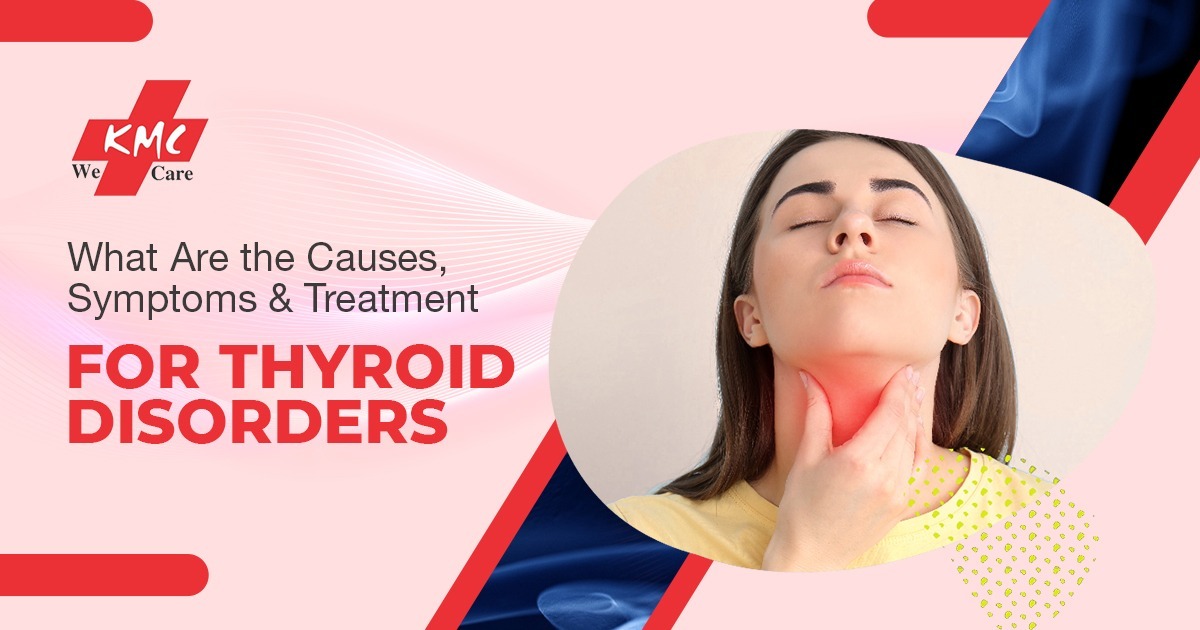The thyroid gland, though small in size, plays a crucial role in regulating various bodily functions but when it malfunctions, it can lead to a range of health issues known as thyroid disorders.
Thyroid disorders affect millions of people worldwide yet they often go undiagnosed or misunderstood which is why today we’ll delve into the causes, symptoms and treatment options for thyroid disorders to provide a better understanding of these conditions. So without any further ado, let’s get going.
Causes of Thyroid Disorders
Thyroid abnormalities can stem from various factors including
• Autoimmune Diseases
Conditions like Hashimoto’s thyroiditis and Graves’ disease where the body’s immune system mistakenly attacks the thyroid gland which in turn leads to inflammation and dysfunction.
• Iodine Deficiency
The thyroid gland requires iodine to produce hormones, however, insufficient iodine intake can impair hormone production which in turn may lead to thyroid disorders.
• Genetics
A family history of thyroid disorders may raise the risk of getting comparable conditions.
• Thyroid Nodules
Abnormal growths or nodules on the thyroid gland can disrupt hormone production.
• Radiation Exposure
Radiation therapy, particularly to the head and neck area, can damage the thyroid gland and lead to thyroid disorders.
• Sometimes pregnancy can also cause a hormonal imbalance in the body and lead to thyroid problems.
Symptoms of Thyroid Disorders
Thyroid disorders can manifest in various ways and symptoms may vary depending on whether the thyroid is overactive (hyperthyroidism) or underactive (hypothyroidism). However, common symptoms include
1. Hyperthyroidism Symptoms
• Heat intolerance
• Increased sweating
• Nervousness and irritability
• Rapid heartbeat
• Tremors
• Weight loss
2. Hypothyroidism Symptoms
• Cold intolerance
• Constipation
• Dry skin and hair
• Fatigue and weakness
• Weight gain
3. Thyroid Nodule Symptoms
• Breathing difficulties (in severe cases)
• Hoarseness or difficulty swallowing
• Neck pain
• Swelling or lump in the neck
Treatment Options
Treatment for thyroid disorders aims to restore hormone levels to normal and alleviate symptoms. The approach may vary depending on the specific condition and its severity, however, common treatment options include
• Medication
Thyroid hormone replacement therapy is often prescribed for hypothyroidism to supplement the deficient hormones. Anti-thyroid medications or radioactive iodine may be used to manage hyperthyroidism by reducing hormone production.
• Surgery
In cases of thyroid nodules, goiter or thyroid cancer, surgery may be necessary to remove part or all of the thyroid gland.
• Radioactive Iodine Therapy
This treatment involves ingesting radioactive iodine which selectively destroys thyroid tissue, often used to treat hyperthyroidism.
• Lifestyle Changes
Adopting a healthy lifestyle including a balanced diet, regular exercise, stress management and adequate sleep can support thyroid health and improve overall well-being.
• Monitoring and Follow-Up
Regular monitoring of thyroid function through blood tests is essential to adjust treatment as needed and prevent complications.
Wrapping It Up
Thyroid disorders are common yet often misunderstood conditions that can significantly impact one’s quality of life if left untreated.
That’s why understanding the causes, symptoms and treatment options for thyroid disorders is crucial for early detection and effective management.
If you suspect you may have a thyroid disorder then make sure to consult the doctors at KMC Hospital for proper evaluation and personalized treatment. With proper care and management, KMC promises to help individuals with thyroid disorders live a healthy and fulfilling life.

